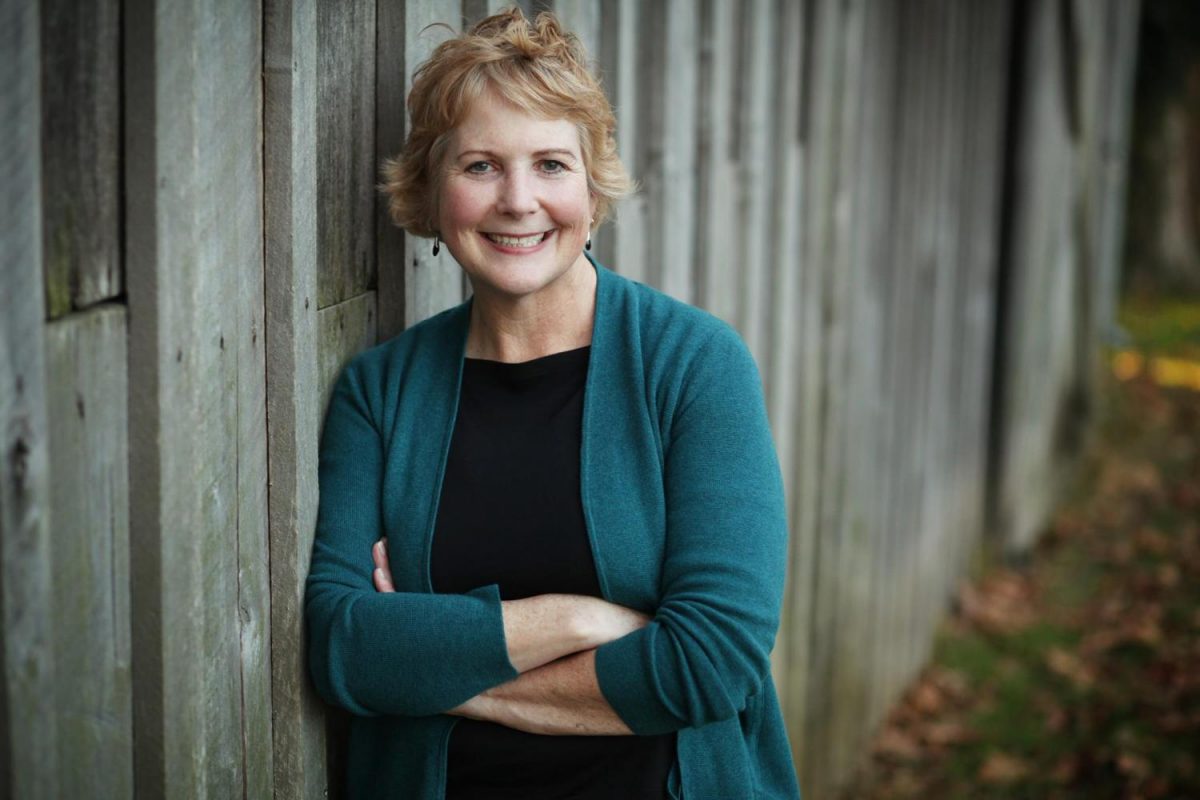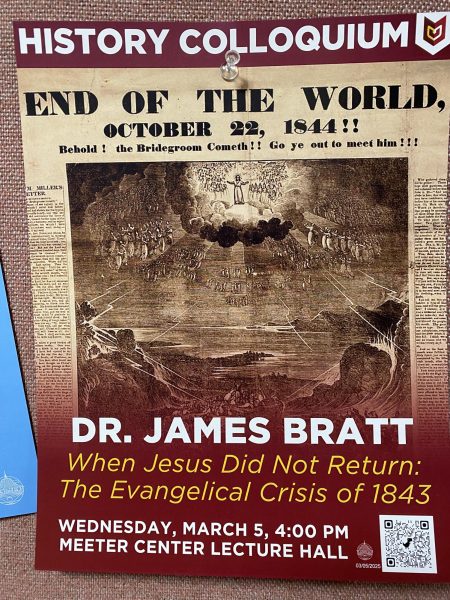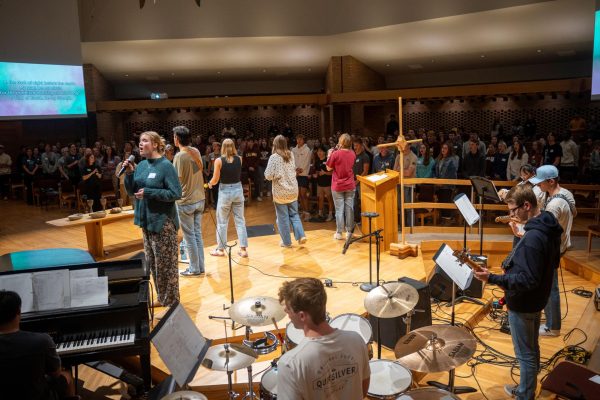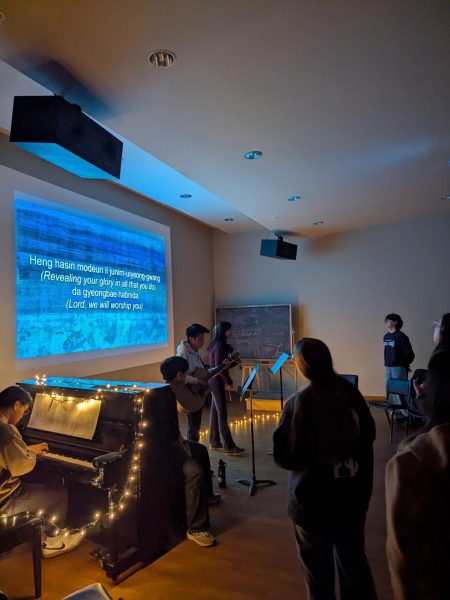Ruth Everhart speaks on “ruined” purity
Pastor, author and Calvin alumna Ruth Everhart spoke at Baker Book House on Thursday, Sept. 28 about her newest spiritual memoir, “Ruined,” one of Christianity Today’s “2017 Book of the Year” winners.
Ruth Everhart has been ordained in the Presbyterian Church (USA) since 1990 and currently pastors a church in the Washington D.C. area. In addition to “Ruined,” she has written one other spiritual memoir entitled “Chasing the Divine in the Holy Land.”
In 1978, Everhart and her four housemates, all seniors at Calvin, were raped in their home, an event which changed their lives, their friendship and their faith. The memoir begins the night of the break-in and intersperses Everhart’s backstory throughout.
Readers may be surprised by the abrupt beginning of “Ruined,” but the crime is not the bulk of her story. In Everhart’s words, the more important part of a person’s story is not what happens to her but what that she believes about what happens. For this reason, “Ruined” largely centers on Everhart’s thoughts and reflections following the assault.
After providing context, Everhart shared the reasons she wrote “Ruined,” naming her daughters as the primary one. She said that she was the only woman of the five in her college house who had daughters and that this gave her a unique perspective.
It is with this perspective that she looks back on the events that took place and the responses of herself, her friends, her family and the CRC community. “Ruined” is addressed to “daughters,” and she said that this word is gender inclusive. Everhart said that the word has a sweetness to it and a place in which one can belong.
Everhart did not find a place of belonging for herself in the CRC denomination after the events during her senior year. During the Q&A portion of the event, one woman asked how to respond to patriarchy and misogyny within one’s church.
Speaking from her own experience, Everhart responded, “I had to leave the denomination.”
The next question from the audience asked what the church could do for victims of sexual assault. Everhart answered by saying that churches and Christians need to be better educated. The biggest problem Everhart experiences is that churches and Christians do not know what to do in instances of sexual violence.
Drawing from experiences as both a sexual assault survivor and as a pastor, she outlined ways that the church can be more prepared. Rather than being stunned when friends or fellow Christians experience these injustices, the church needs to be familiar with the language of rape and rape culture and name it for what it is. Christians should not break down when they interact with victims; rather, they should be able to “stand tall.”
Everhart also advocates for encouraging women in the church to exert their agency in the world. Everhart wants women to push back on the notion of feminine passivity.
“[Women] have our will and we should push back against evil. So what if people call you a bitch or say you have too loud a voice? Let’s support each other.”
“Christianity is not about being a good girl, it is about being a disciple of Jesus Christ,” she said. “God did not create you to be nice.”







Nyla • Oct 8, 2017 at 6:47 pm
I too, have left the CRC Denomination for lack of understanding and grace.